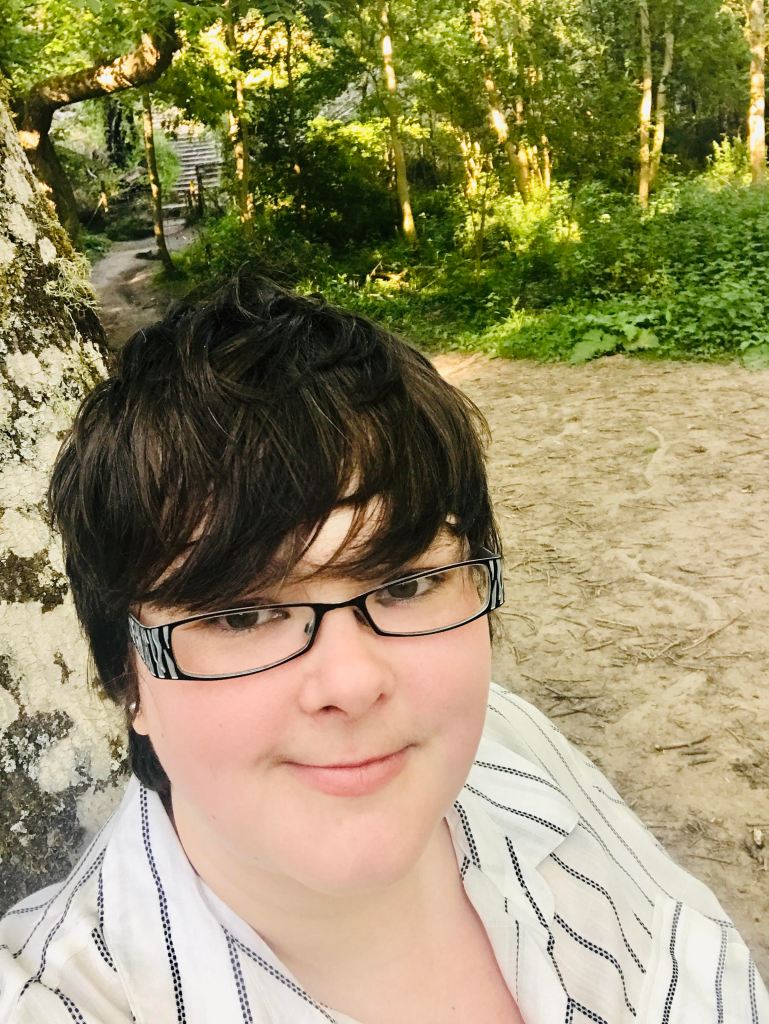

Bringing disabled women together, mobilising
and sharing through lived experiences
Cripple is my safe word: sex inclusion for the narrow-minded
Let me start by setting the scene: I’m using the curvature of the sofa arm to
rest across, the cushions are being pulverised into the crook of the chair as
my elbows press down, my hair is pulled back, and for a brief second, I no
longer remember which way is up. The lack of perspective adds layers of
pleasure and sweetness only misdirection can give. It is bliss. The bath I had earlier keeps my hips flexible to my partner and the painkillers prevent the pleasure subsiding into pain. All this in the name of sex. Brilliant, amazing sex with somebody I love.
In the background is a not so distant memory of a charity advert. At first
watch, it brought me tears. The message: arthritis has stolen intimacy from
someone you know. Originally, I couldn’t get my head around the idea of it.
Was it supposed to be saying I was too disabled to have sex? Or was it simply saying that sex wasn’t natural for somebody like me? I understand that everybody experiences arthritis differently. It’s the one thing I find most beautiful about living with a chronic illness within a disabled community. Every day comes with a multitude of differences, and no two are experienced the same. Diversity and adaptability are superpowers in the face of all the you can nots we are told.
So why did they see this advert as fitting? Intimacy is not a privilege reserved for some, nor is it stripped away completely by chronic illness. Sex is not a three-step recipe of getting it up, getting it in and getting it off. There are so many more nuances and experiences to be had in sex than just those three.
There is touch and sensitivity, blindfolds and descriptive play, toys and cotton buds. We have hoists that double up as swings, and hand grabbers that pinch. There is a realm of imaginative play that belongs to every one of us if we choose to express ourselves in that way.
The first time I saw this advert I was furious at the implications it made. The second time it came on I was prepared to prove it wrong. I’m not saying sex is the answer, but it sure as hell made me feel better. Collapsed on the sofa after recovering with my partner I realised something important: closeness isn’t defined by somebody else, nor a pity-seeking advert. It was the way we melted together, and how we laughed at the silliness of it all. It’s in the shared state of vulnerability and trust that makes it intimate, not in the way others seek pleasure. So, to my sisters out there, let me say this; when the world tells you that you are too different to be human, remember that sex is revolutionary. Be proud of who you are in all your difference because, in the face of ableism, orgasms are activism.

Heather splits her time writing YA novels and studying a BSc in Nursing at Canterbury Christ Church University. Diagnosed with Rheumatoid arthritis at the age of 13, writing has become a vital component of pain management
and expression in her life. Her debut novel, Murder the March Hare, will be published later on this year. Find her on twitter @HevJaneLyall or on
Instagram: heather_jane22
this is part of the Sister Stories series.

Sexuality and Disability
our Disability and Sex/uality project led by Dyi Hudjg and Lani Parker
We’re very happy to have a link to www.sexualityanddisability.org (via INWWD) , a website that starts with the premise that women who are disabled are sexual beings – just like any other woman.
It is a great resource – sexualityanddisability.org is brought to you by (CREA ![]() ) and Point of View
) and Point of View ![]() . Based in Delhi and New York, CREA is a feminist human rights organisation that promotes, protects and advances the sexual rights of all people; as part of its programs, it runs an online course on disability, gender and sexuality. Based in Mumbai, Point of View is a non-profit platform that brings the points of view of women into mutliple domains through media, art and culture.
. Based in Delhi and New York, CREA is a feminist human rights organisation that promotes, protects and advances the sexual rights of all people; as part of its programs, it runs an online course on disability, gender and sexuality. Based in Mumbai, Point of View is a non-profit platform that brings the points of view of women into mutliple domains through media, art and culture.
We would recommend browsing the website.
- is constructed as a bunch of questions a woman with a disability might have – about her body, about the mechanics and dynamics of having sex, about the complexities of being in an intimate relationship or having children, about unvoiced fears or experiences of encountering abuse in some form.
- discusses a wide range of topics related to sexuality without shying away from them – parts of it are explicit. People have different views of what is and isn’t appropriate and we’ve included them all.
- is accessible to people with disabilities; special features have been included to ensure this.
- has been created with the active support of women with disabilities, disability rights activists, counselling professionals, and organizations working on disability. More and more women with disabilities are reclaiming their sexual selves, speaking out through blogsÂ
 , filmsÂ
, films  , booksÂ
, books  , performancesÂ
, performances  , websitesÂ
, websites   and offline activism.
 and offline activism. - aims to provide women with disabilities and related constellations – partners, families, health workers, counsellors, organisations – a platform to explore this further.

